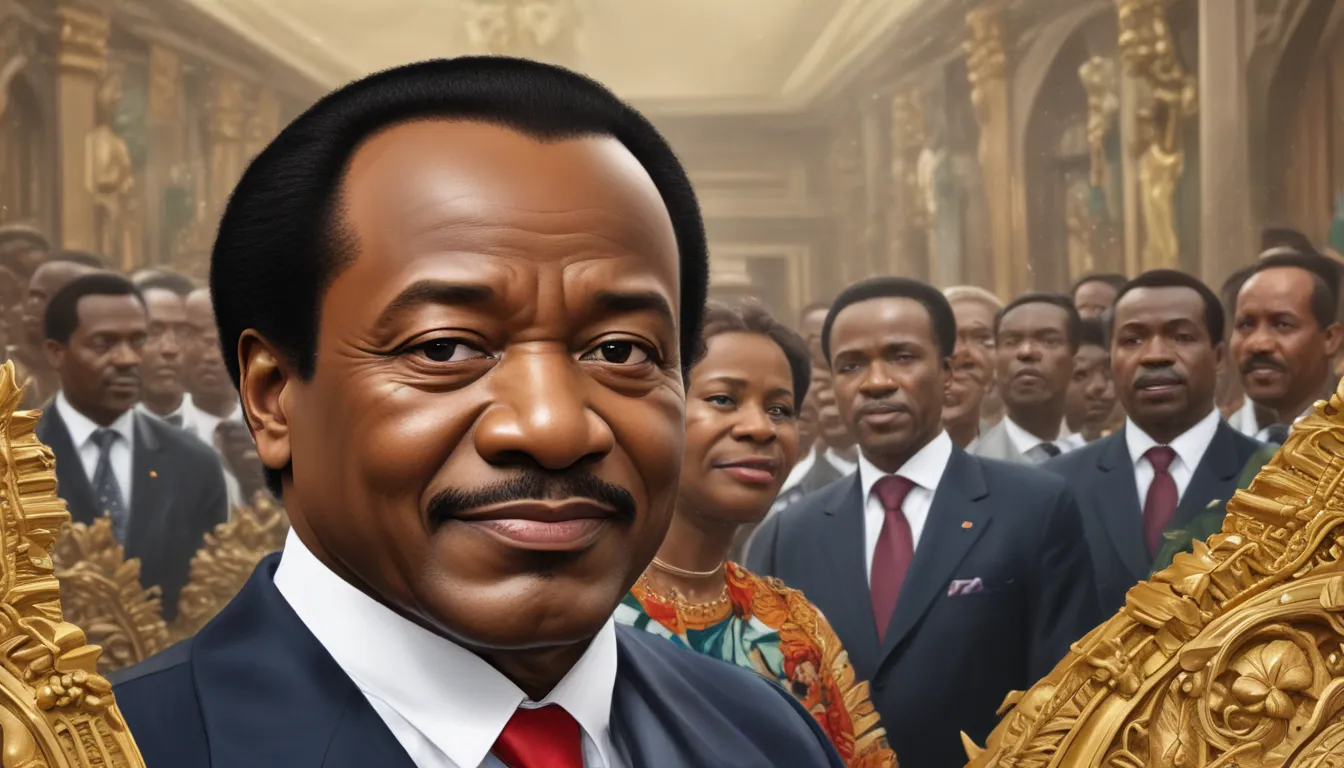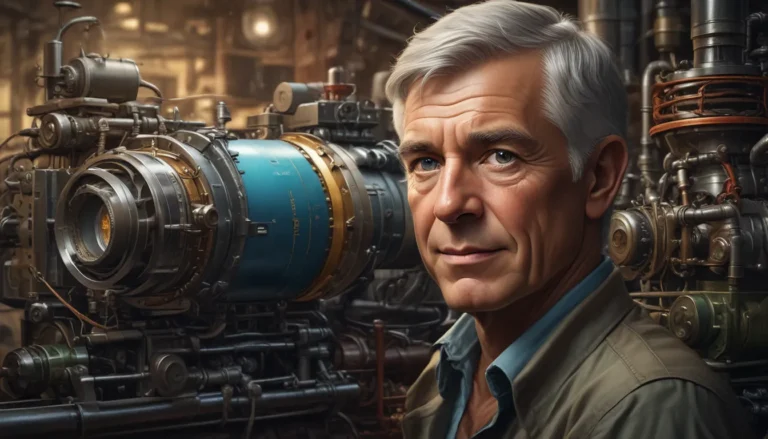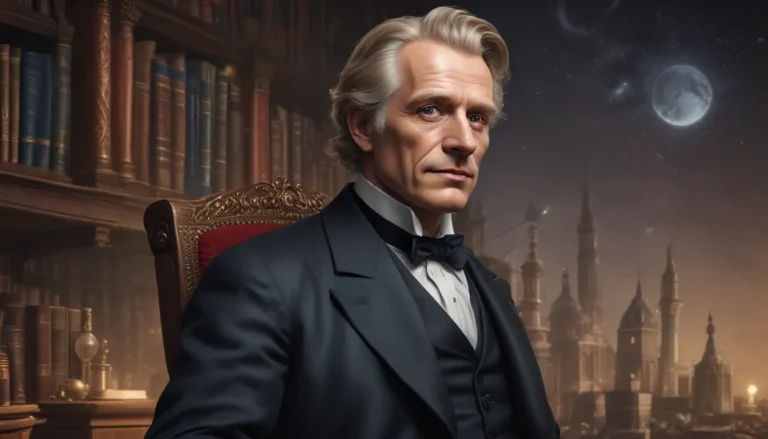The images in our articles may not match the content exactly. They are used to grab your attention, not to show the exact details in the text. The images complement the text but do not replace it.
Paul Biya, the enigmatic President of Cameroon, has held the reins of power for over four decades, shaping the political landscape of his nation and the central African region. His leadership style, marked by both admiration and criticism, has stirred global attention, making him a fascinating figure in international politics. Join us as we unravel the captivating journey of Paul Biya with 24 astounding facts that illuminate his political career, personal life, and enduring legacy.
The Early Years of Paul Biya
Born on February 13, 1933, in the humble village of Mvomeka’a, Cameroon, Paul Biya’s upbringing in a rural setting had a profound impact on his political trajectory. Despite his modest beginnings, Biya’s insatiable thirst for knowledge propelled him to pursue higher education abroad.
Academic Excellence and Political Ascent
Paul Biya’s academic prowess led him to the University of Paris, where he earned a Bachelor’s degree in Law and Political Science. Armed with his educational achievements, Biya ventured into the political arena, serving as Prime Minister of Cameroon before assuming the presidency in 1982.
The Longest Reign in African Politics
Since November 6, 1982, Paul Biya has steered the course of Cameroon as its President, making him one of Africa’s longest-serving leaders. His enduring tenure has been characterized by both triumphs and challenges, shaping the complex dynamics of Cameroonian politics.
A Polarizing Figure on the Global Stage
Paul Biya’s leadership style has been a subject of fervent debate, with critics highlighting his authoritarian tendencies and control over state institutions. Despite facing calls for resignation and allegations of electoral fraud, Biya remains a dominant and polarizing figure in Cameroonian politics, with a legacy that cannot be overlooked.
The Cameroon People’s Democratic Movement (CPDM)
As a prominent member of the ruling political party, the Cameroon People’s Democratic Movement (CPDM), Paul Biya has played a pivotal role in shaping the party’s policies and direction. His influence within the party has been instrumental in steering the course of Cameroonian politics.
Controversies and Criticisms
Throughout his presidency, Paul Biya has faced censure for his autocratic governance and repression of political dissent. Human rights organizations have raised concerns about political freedoms in Cameroon, sparking fervent debates about the state of democracy under Biya’s leadership.
The Extravagant Lifestyle of Paul Biya
Renowned for his opulent lifestyle and lavish spending, Paul Biya’s penchant for luxury has drawn sharp rebuke from his detractors. His extravagant tastes in fashion and frequent travels have often been juxtaposed with the economic challenges faced by many ordinary Cameroonians.
Contributions to Regional Stability
Paul Biya’s involvement in regional politics has been marked by efforts to foster peace and stability in neighboring countries such as Chad and the Central African Republic. His contributions to regional diplomacy have earned him international recognition and accolades.
Awards and Recognitions
Over the years, Paul Biya has been honored with prestigious awards for his dedication to diplomacy and peacekeeping initiatives. Notable accolades include the Indira Gandhi Peace Prize and the Nelson Mandela Prize for Outstanding Leadership, underscoring his contributions to global peace and security.
Legacy and Criticisms
Despite his enduring legacy and political influence, Paul Biya has faced mounting calls for his resignation amidst growing discontent and unrest in Cameroon. Activists and opposition groups have decried his prolonged presidency, citing challenges to democratic progress and political reform.
Infrastructure Development Under Biya’s Leadership
Under Paul Biya’s stewardship, Cameroon has witnessed significant infrastructure projects aimed at enhancing connectivity and fostering economic growth. Initiatives such as road construction, bridge development, and dam construction have been pivotal in advancing the nation’s infrastructure.
The Enigmatic “Silent Dictator”
Paul Biya’s reserved demeanor and secretive nature have earned him the moniker of “the Sphinx” and the label of a “silent dictator” by critics. Speculations about his behind-the-scenes influence and wielding of power have fueled intrigue and debate surrounding his leadership style.
Literary Pursuits and Intellectual Endeavors
Beyond his political career, Paul Biya is an accomplished author, with several books to his credit. Works such as “Communal Liberalism” and “An African Conscience: The Life and Legacy of Patrice Lumumba” showcase Biya’s intellectual depth and literary prowess.
Resilience and Political Dominance
Despite facing a myriad of challenges and controversies, Paul Biya’s unwavering resilience has solidified his position as a dominant figure in Cameroonian politics. His ability to weather opposition and maintain a firm grip on power underscores his enduring influence in the nation.
Conclusion: Reflecting on Paul Biya’s Legacy
In conclusion, Paul Biya’s remarkable journey as the President of Cameroon embodies a complex tapestry of achievements and criticisms. From his rise to power to his enduring reign, Biya’s impact transcends national borders, shaping the course of African politics and governance.






